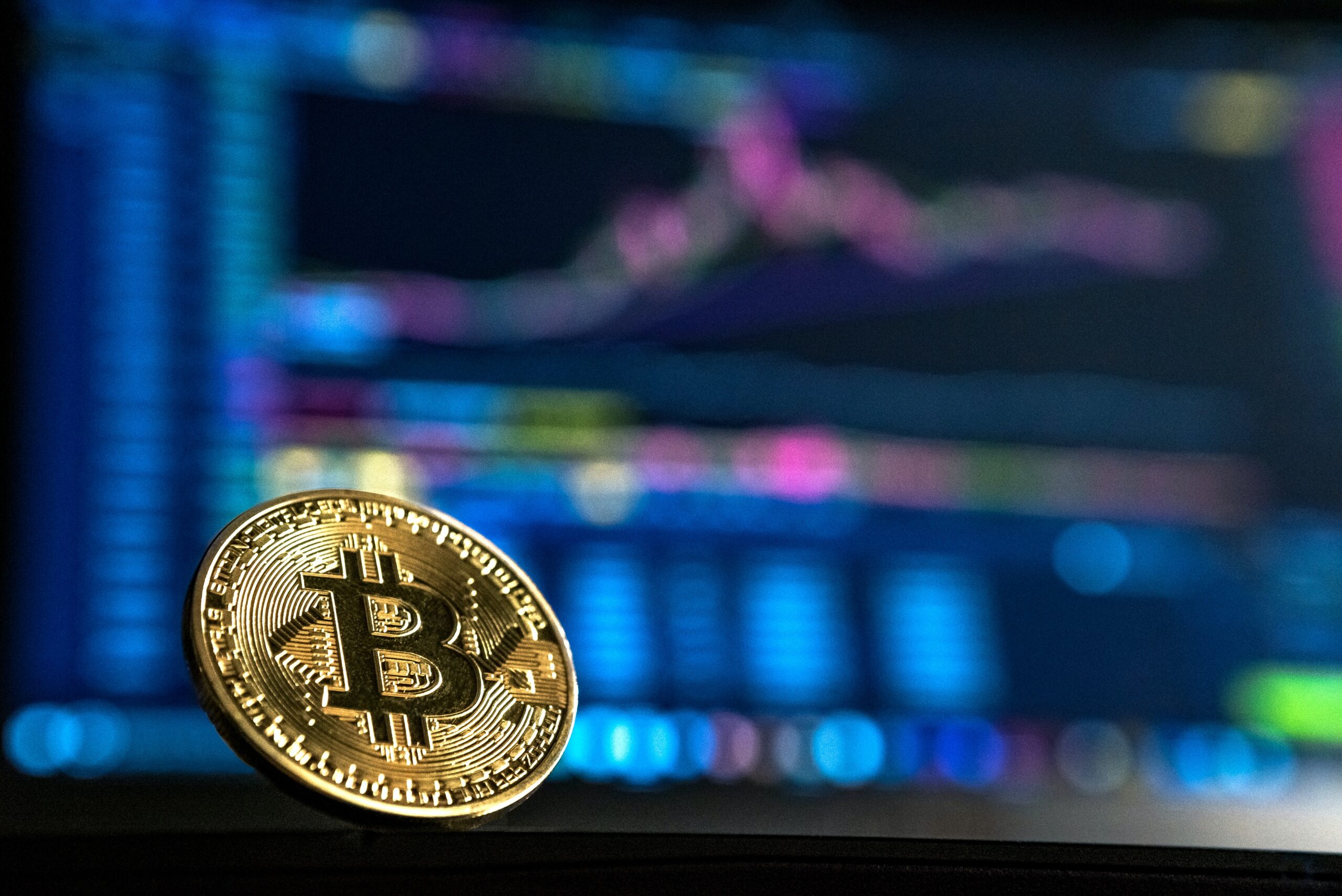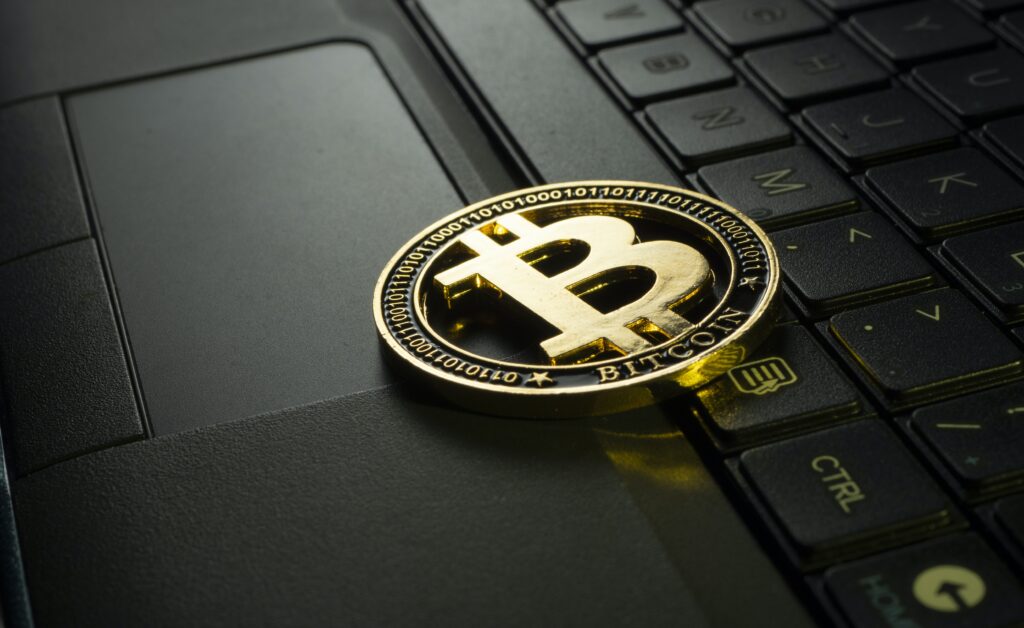
In a rapidly evolving digital landscape, investing in cryptocurrencies has gained significant attention. As the popularity of Bitcoin and other digital assets continues to rise, individuals are looking for secure and reliable ways to enter the world of cryptocurrency investment. This is where Compare Bitcoin IRA comes into play. Serving as a comprehensive platform, Compare Bitcoin IRA enables users to compare different Bitcoin IRA providers, ensuring they make an informed decision when it comes to their digital investments. With a user-friendly interface and detailed information on various providers, Compare Bitcoin IRA empowers individuals to navigate the intricate world of cryptocurrency investments with confidence and ease.
Account Types
Traditional IRA
A Traditional IRA, or Individual Retirement Account, is a type of retirement account that offers potential tax benefits. With a Traditional IRA, you contribute pretax dollars, meaning you can deduct the amount from your taxable income for the year. This allows you to potentially receive a tax break in the year of contribution. Additionally, any earnings on the investments within the Traditional IRA are tax-deferred until you begin making withdrawals during retirement. However, when you do withdraw funds from a Traditional IRA, you will be subject to income tax at your ordinary tax rate.
Roth IRA
A Roth IRA is another type of retirement account that offers unique tax advantages. With a Roth IRA, you contribute after-tax dollars, meaning you cannot deduct the contributions from your taxable income. However, the benefit of a Roth IRA comes during retirement, when you can withdraw funds tax-free. This is because the contributions were made with after-tax dollars, so they have already been taxed. Additionally, any earnings on the investments within the Roth IRA are also tax-free, as long as certain withdrawal requirements are met.
SEP IRA
A SEP IRA, or Simplified Employee Pension Individual Retirement Account, is a retirement account designed for self-employed individuals and small business owners. SEP IRAs offer a simple and cost-effective way for these individuals to save for retirement, while also providing potential tax benefits. With a SEP IRA, the business owner can contribute funds on behalf of themselves and their eligible employees. Contributions are tax-deductible for the business owner, and the funds within the SEP IRA grow tax-deferred until retirement. Withdrawals in retirement are then subject to ordinary income tax rates.
401(k) Plan
A 401(k) plan is an employer-sponsored retirement plan that allows employees to save for retirement through automatic payroll deductions. With a 401(k), you contribute pretax dollars, which means you can deduct the contributions from your taxable income. This provides an immediate tax benefit, as your taxable income for the year is reduced. Additionally, many employers offer matching contributions, meaning they will contribute a certain percentage of your salary into your 401(k) plan as well. The funds within a 401(k) plan grow tax-deferred until retirement, and withdrawals are then subject to income tax at your ordinary tax rate.
Bitcoin Custody
Self-Custody
Self-custody refers to the practice of holding and managing your own bitcoin and other cryptocurrencies. This means you are responsible for securely storing your private keys, which are necessary to access and transfer your digital assets. Self-custody can provide a higher level of autonomy and control over your bitcoin, as you are not relying on a third-party custodian to safeguard your assets. However, self-custody also requires a high level of technical knowledge and security precautions to protect against loss or theft.
Third-Party Custody
Third-party custody involves entrusting your bitcoin and other cryptocurrencies to a professional custodian or storage service. These custodians specialize in securely storing digital assets and typically offer additional security measures such as multi-signature technology and cold storage. By relying on a third-party custodian, you can benefit from their expertise and infrastructure, reducing the risk of loss or theft. However, it’s important to carefully choose a reputable custodian and understand the fees associated with their services.

Investment Options
Bitcoin
Bitcoin is the first and most well-known cryptocurrency, and it has gained significant popularity as a long-term investment. Bitcoin offers the potential for substantial returns, but it also carries a higher level of risk compared to traditional investments. As with any investment, it’s important to carefully consider your risk tolerance and investment objectives before allocating a significant portion of your retirement funds to bitcoin.
Other Cryptocurrencies
In addition to bitcoin, there are thousands of other cryptocurrencies available for investment. These alternative cryptocurrencies, also known as altcoins, offer different features and potential investment opportunities. However, it’s important to note that altcoins can be highly volatile and carry additional risks compared to bitcoin. It’s essential to thoroughly research and understand the specific altcoins you are considering before investing your retirement funds.
Precious Metals
Precious metals, such as gold and silver, have long been considered a safe haven investment. Investing in precious metals can provide diversification to your retirement portfolio and serve as a hedge against inflation. Many custodians offer the option to invest a portion of your retirement funds in physical gold and silver, which are securely stored on your behalf.
Stocks
Stocks represent shares of ownership in publicly traded companies. Investing in stocks can provide the potential for long-term growth and dividends. Custodians may offer a variety of stock investment options, including individual stocks, mutual funds, and exchange-traded funds (ETFs). It’s important to carefully evaluate the investment objectives, risks, and historical performance of any stocks you are considering for your retirement portfolio.
Bonds
Bonds are debt instruments issued by corporations, municipalities, and governments to raise capital. Investing in bonds can provide a steady stream of income through periodic interest payments, as well as return of principal at maturity. Custodians may offer a range of bond investment options, including corporate bonds, municipal bonds, and government bonds. It’s important to carefully assess the creditworthiness and risk profile of any bonds you are considering to ensure they align with your investment goals.
Fees
Account Setup Fee
Some custodians may charge an account setup fee when establishing a new retirement account. This fee covers the administrative costs associated with creating and maintaining your account. The account setup fee can vary among custodians, so it’s important to review the fee structure before choosing a custodian.
Annual Maintenance Fee
An annual maintenance fee is charged by many custodians to cover the ongoing administrative costs of managing your retirement account. This fee is typically a percentage of your account balance and may be subject to a minimum or maximum fee amount. It’s important to understand the annual maintenance fee structure and consider it when comparing different custodians.
Transaction Fees
Transaction fees are charges imposed by custodians for executing buy and sell orders within your retirement account. These fees can vary depending on the type of investment and the custodian’s fee structure. It’s important to carefully review the transaction fee schedule to understand the costs associated with managing your investments.
Custodial Fees
Custodial fees are charges levied by custodians for the storage and safekeeping of your assets. These fees are typically based on a percentage of your account balance and may vary among custodians. It’s important to evaluate the custodial fees when comparing different custodians, as they can have a significant impact on the overall performance of your retirement account.

Security
Cold Storage
Cold storage is a security measure that involves storing bitcoin and other digital assets offline to protect against hacking and unauthorized access. Cold storage typically involves the use of hardware wallets or air-gapped computers that are not connected to the internet. By keeping your private keys offline, you significantly reduce the risk of your bitcoin being compromised. Many custodians offer cold storage options for their clients’ digital assets.
Multi-Signature Technology
Multi-signature technology, also known as multi-sig, adds an extra layer of security to bitcoin transactions and storage. With multi-sig, multiple private keys are required to authorize a transaction, reducing the risk of a single point of failure. This technology can help protect against unauthorized access and can be implemented by custodians to enhance the security of their clients’ digital assets.
Insurance Coverage
Insurance coverage is an additional security measure offered by some custodians to protect against loss or theft of digital assets. This insurance can provide further peace of mind, knowing that your bitcoin are protected in the event of a security breach. It’s important to review the insurance coverage provided by custodians and understand the limitations and exclusions of the policy.
Regulatory Compliance
IRS Compliance
Retirement accounts, including Bitcoin IRAs, must comply with IRS regulations to maintain their tax advantages. It’s important to choose a custodian that is knowledgeable and experienced in IRS compliance to ensure that your retirement account remains in good standing. Custodians should provide the necessary reporting and documentation to help you meet your tax obligations.
Know Your Customer (KYC) Regulations
Know Your Customer regulations require custodians to verify the identity of their clients to prevent money laundering, fraud, and other illegal activities. When opening a Bitcoin IRA, you will likely be required to provide documentation and information that confirms your identity. This is a necessary step to comply with KYC regulations and maintain the integrity of the financial system.
Anti-Money Laundering (AML) Regulations
Anti-Money Laundering regulations aim to prevent the use of financial systems for money laundering and terrorist financing. Custodians of Bitcoin IRAs must have robust AML policies and procedures in place to detect and prevent illicit activities. Compliance with AML regulations helps protect the integrity of the financial system and ensures the legitimacy of your retirement account.

Account Funding
Direct IRA Rollover
A direct IRA rollover allows you to transfer funds from an existing retirement account, such as a Traditional IRA or 401(k), into a Bitcoin IRA without incurring taxes or penalties. This rollover can be a straightforward way to fund your Bitcoin IRA and take advantage of the potential benefits of holding bitcoin within a tax-advantaged account. It’s important to consult with a tax advisor and custodian to ensure the rollover is executed correctly.
Contributions
Contributions are additional funds that you can add to your Bitcoin IRA on an annual basis. The IRS sets contribution limits for retirement accounts, so it’s important to be aware of these limits and ensure that your contributions do not exceed them. Contributions to a Bitcoin IRA can be made with cash or other eligible assets, subject to the custodian’s policies and IRS regulations.
Transfer from an Existing IRA
You may also be able to transfer funds from an existing IRA to a Bitcoin IRA. This transfer allows you to move assets between retirement accounts without incurring taxes or penalties. It’s important to follow the IRS rules and guidelines for IRA transfers and consult with a custodian to ensure a smooth transfer process.
Withdrawals
Tax Implications
Withdrawals from a Bitcoin IRA are subject to taxation, just like withdrawals from any other type of retirement account. The tax treatment will depend on the type of retirement account and the nature of the withdrawal. Traditional IRA withdrawals are taxed as ordinary income, while Roth IRA withdrawals may be tax-free if certain requirements are met. It’s important to consult with a tax advisor to understand the tax implications of your Bitcoin IRA withdrawals.
Penalties
Withdrawals from a Bitcoin IRA before reaching the age of 59 ½ may be subject to an additional 10% early withdrawal penalty, in addition to any applicable income tax. This penalty is meant to deter individuals from accessing their retirement funds before retirement. However, there are certain exceptions to the early withdrawal penalty, such as financial hardship or disability. It’s important to understand the consequences of early withdrawals and explore other options before considering this route.
Qualified Distributions
Qualified distributions from a Bitcoin IRA refer to withdrawals made after reaching the age of 59 ½. These withdrawals are generally not subject to the 10% early withdrawal penalty and may be eligible for more favorable tax treatment, depending on the type of retirement account. It’s important to consult with a tax advisor to determine if your Bitcoin IRA withdrawals qualify as qualified distributions.
Account Management
Online Platform
Many custodians offer online platforms that allow you to manage and monitor your Bitcoin IRA. These platforms provide convenient access to your account information, investment options, and transaction history. Online platforms may also offer educational resources and tools to help you make informed investment decisions. It’s important to choose a custodian with a user-friendly and secure online platform that meets your needs.
Dedicated Account Manager
Some custodians provide a dedicated account manager to assist with the management of your Bitcoin IRA. An account manager can offer personalized guidance and support, helping you navigate the complexities of investing in digital assets. This can be particularly valuable if you are new to cryptocurrencies or require additional assistance in managing your retirement account.
24/7 Customer Support
Responsive customer support is essential when managing a Bitcoin IRA. Custodians that offer 24/7 customer support ensure that assistance is available whenever you need it, regardless of the time zone or day of the week. Whether you have questions about your account, need help with a transaction, or require technical support, 24/7 customer support can provide peace of mind and help streamline your account management experience.
Company Reputation
Industry Experience
When choosing a custodian for your Bitcoin IRA, it’s important to consider their industry experience. Look for custodians that have a proven track record and have been in the industry for a significant period. Custodians with extensive experience are more likely to have established relationships, robust infrastructure, and a deep understanding of the unique challenges and opportunities associated with digital asset custody.
Client Reviews
Client reviews can offer valuable insights into the quality of service provided by a custodian. Take the time to read client reviews and testimonials to get a sense of the overall customer experience. Look for custodians that have a high number of positive reviews, as well as responsive and proactive customer support.
Industry Awards
Industry awards can serve as a further validation of a custodian’s reputation and expertise. Awards are often given to custodians that demonstrate exceptional performance, innovation, and commitment to client satisfaction. Look for custodians that have received industry awards, as this can be a strong indicator of their credibility and ability to meet your investment needs.
In conclusion, when considering a Bitcoin IRA, it’s important to carefully compare the different account types, custody options, investment options, fees, security measures, regulatory compliance, account funding and management options, as well as the reputation of custodians. By thoroughly evaluating these factors, you can make an informed decision that aligns with your retirement goals and ensures the security and growth of your investment portfolio.
